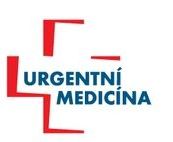INTRODUCTION
Editorial
Jana Šeblová
Contents
CLINICAL TOPICS AND RESEARCH
Life-threatening conditions during pregnancy – Part I. – Delivery in the pre-hospital care and airway management in a pregnant patient
Andrea Smolková
Abstract
Prehospital care in a case of childbirth outside of hospital is relatively infrequent. It depends on the number of hours spent by a doctor in the emergency medical service (EMS) ambulance. This could be about once or twice a year, depending on the region of Slovakia. Doctors without experience working in the Department of Anesthesiology and Intensive care rarely meet with the situation where they have to secure and manage the airways of a pregnant woman. In this situation gaining and maintaining experience is very difficult. As pregnancy leads to physiological changes in the body, it is important to know and take into account woman’s multiple therapeutic actions. Similarly experience is important dealing with comorbidity, that increasingly occurs in developed countries due to women giving birth at an older age. We can say that childbirth and mangement of airways in prehospital care is working under difficult conditions, which are exacerbated when we consider physiological and the possibility of comorbidity that influence and affect a mother and fetus. Consequently it is an intervention in a difficult situation where a doctor outside of hospital environment does not have other specialists and specialised medical equipment. Nevertheless an EMS doctor must be ready and able to intervene in these situations, so to provide the best result for the individuals at risk.
The Northern district – a short analysis of the dispatchers´ competition task at Rallye Rejviz 2014
Ondřej Franěk
Abstract
This paper analyses a brief assessment of the task „The Northern district“ – one of the dispatchers´ competition task at Rallye Rejviz 2014. Although the simulated environment was extremely simplified and “unnatural”, it can be generalized, that problems persists especially in the systematic approach to call evaluation, as well as in the communication management among crew members (Crisis resource management – CRM).
ETHICS, PSYCHOLOGY, LAW
Holistic approach to bereaved persons in case of a sudden death of their relative from the Emergency Medical Service team´s nurse point of view
Alena Gutová, Marie Trešlová
Abstract
The article deals with the practical experience of the nurse/paramedic, a member of Emergency Medical Service´s team confronted with the results of its own research, carried out in the a holistic approach to bereaved persons in case of a sudden death of their relatives. The research deals with holistic approach of nursing staff of the Emergency Medical Service by providing psychosocial support and crisis communication to the bereaved persons and witnesses of a sudden death provided by a nurse (a member of the Emergency Medical Servoce´s team) and seen from her/his perspective. The goal of the research has been firstly to detect problems which nursing staff deals with during the contact with the sudden death witnesses and bereaved persons, and secondly to detect how nurses as members of the Emergency Medical Service are prepared for communication with the bereaved persons and witnesses. The result of the research was that the nurses/paramedics are not quite ready to provide psychosocial support and crisis communication management with s the bereaved persons and witnesses.
DISCUSSION, OPINION
A current state in the crisis intervention
Jana Šeblová, Lukáš Humpl
RESUSCITATION – CZECH RESUSCITATION COUNCIL NEWSLETTER
ACCA (Acute Cardiovascular Care Association) – 3rd Euroepan summit on pre-hospital care, France, 7th – 8th April 2014
Jana Šeblová, Anatolij Truhlář, Richard Rokyta
Resuscitation ´14 – IV. Czech Resuscitation Council Symposium, 30th May 2014, Conference Centre City
Jana Šeblová, Jarmila Drábková
Immediate Life Support Provider Course
David Peřan
Abstract
Immediate Life Support Provider Course is apart from Advanced Life Support Provider Course another course of European Resuscitation Council which is brought to the Czech Republic by the Czech Resuscitation Council. This course is shorter than ALS course and is suitable for physicians who are not a regular members of resuscitation teams and for non-medical professions (eg. paramedics, nurses, EMTs). Participants will learn standardised algorithm for treating critically ill patients or patients in cardiac arrest.
INFORMATION
News from V. Central European congress of Emergency and Disaster medicine in Senec
Táňa Bulíková
